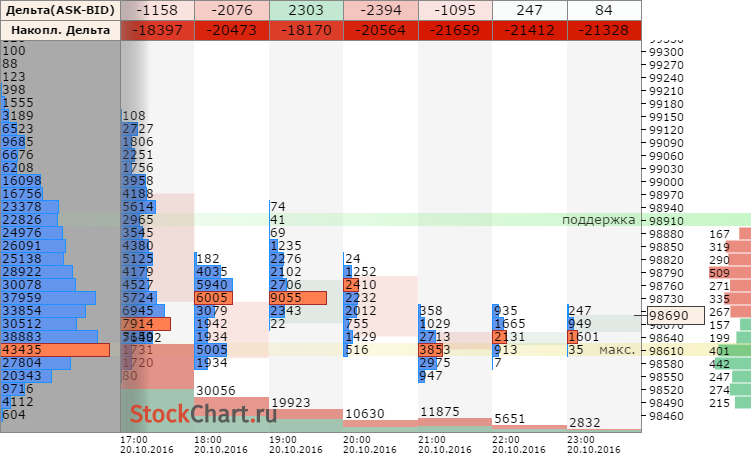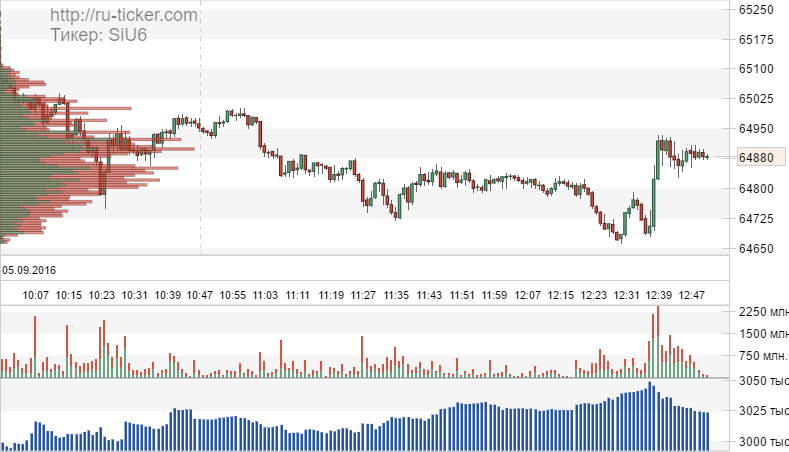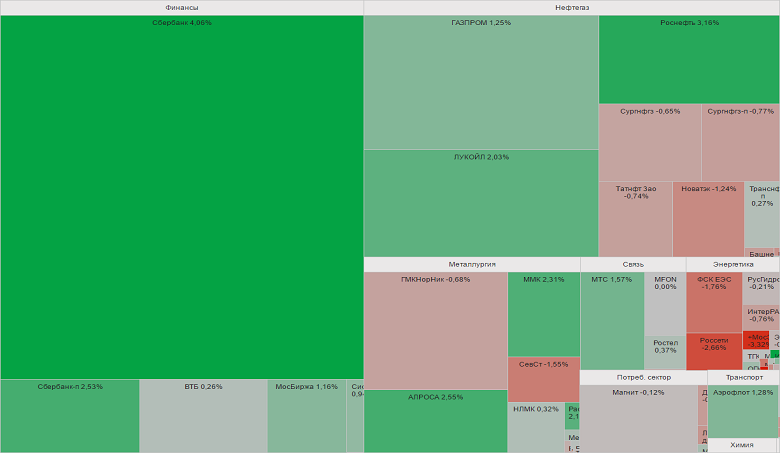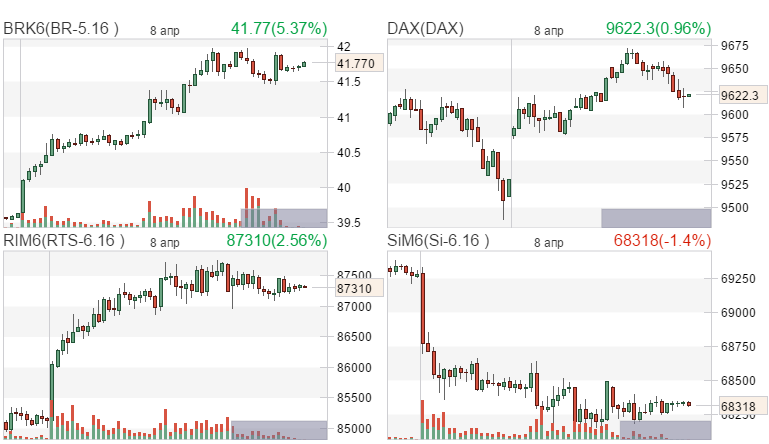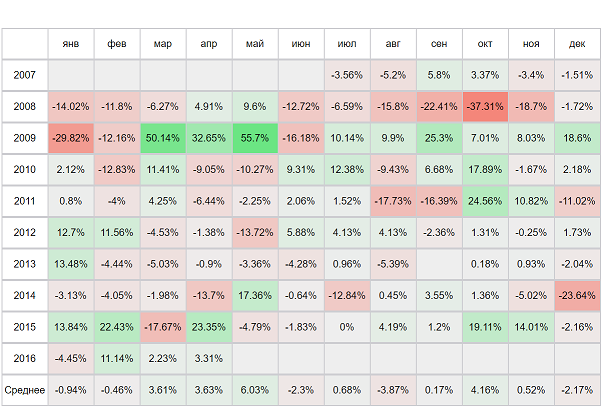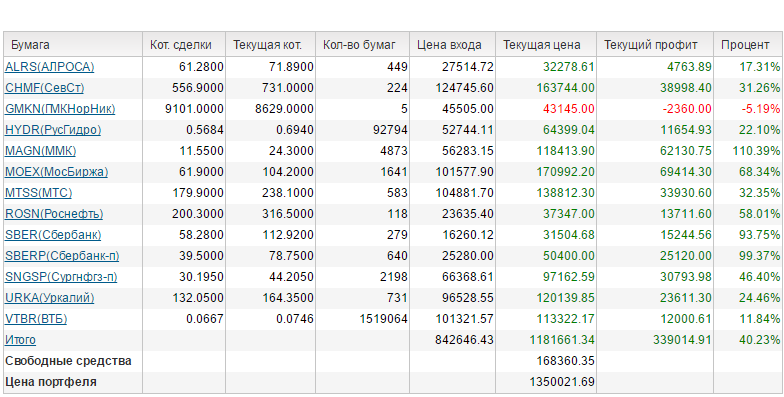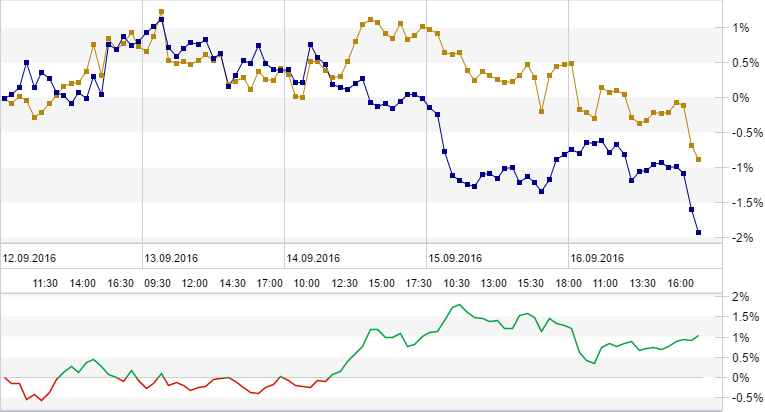 |  |  | |||||||||||
 |
|
||||||||||||
 |  |  | |||||||||||||||
 |
|
||||||||||||||||

Техническая поддержка
ONLINE
 |  |  | |||||||||||||||||
 |
|
||||||||||||||||||
Lecture 5 - Competition is for Losers (Peter Thiel)
ruticker 04.03.2025 15:24:48 Recognized text from YouScriptor channel Y Combinator Extras
Recognized from a YouTube video by YouScriptor.com, For more details, follow the link Lecture 5 - Competition is for Losers (Peter Thiel)
# Peter Thiel on Strategy and Competition All right, all right, good afternoon! Today's speaker is **Peter Thiel**. Peter was the founder of PayPal and Palantir, and he has invested in most of the tech companies in Silicon Valley. He’s going to talk about strategy and competition. Thank you for coming, Peter! Awesome, thanks, Sam, thanks for inviting me, thanks for having me. I sort of have a single idea that I'm completely obsessed with on the business side, which is that if you're starting a company, if you're the founder or entrepreneur starting a company, you always want to aim for **monopoly** and you want to always avoid competition. Hence, **competition is for losers**—something we'll be talking about today. I'd like to start by saying something about the basic idea of when you start one of these companies, how you go about creating value. There’s this question: *What makes a business valuable?* I want to suggest that there’s basically a very simple formula: you have a valuable company if two things are true: 1. It creates **X dollars** of value for the world. 2. You capture **Y%** of X. The critical thing that I think people always miss in the sort of analysis is that X and Y are completely independent variables. So, X can be very big, Y can be very small, X can be of intermediate size, and if Y is reasonably big, you can still get a very big business. To create a valuable company, you have to basically create something of value and capture some fraction of the value of what you've created. To illustrate this as a contrast, if you compare the **U.S. airline industry** with a company like **Google** on search, if you measure by the size of these industries, you could say that airlines are still more important than search if you just measure it by revenues. It was $195 billion in domestic revenues in 2012; Google had just north of $50 billion. Certainly, on some intuitive level, if you were given a choice and said, "Well, do you want to get rid of all air travel or do you want to get rid of your ability to use search engines?" the intuition would be that air travel is something that's more important than search. This is, of course, just the domestic numbers; if you looked at this globally, airlines are much bigger than Google. But the profit margins are quite a bit less. They were marginally profitable in 2012. I think the entire 100-year history of the airline industry, the cumulative profits in the U.S. have been approximately zero. Companies make money, they episodically go bankrupt, they get recapitalized, and you sort of cycle and repeat. This is reflected in the combined market capitalization of the U.S. airline industry, which is maybe something like a quarter that of Google. So, you have a search engine much smaller than air travel but much more valuable. I think this reflects these very different valuations on X and Y. If we look at **perfect competition**, there are pros and cons to the world of perfect competition. On a high level, it’s always easy to model, which I think is why econ professors like talking about perfect competition. It somehow is efficient, especially in a world where things are static, because you have all the consumer surplus gets captured by everybody. Politically, it’s what we’re told is good in our society; you want to have competition, and this is somehow a good thing. Of course, there are a lot of negatives. It’s generally not that good if you’re involved in anything that’s hyper-competitive because you often don’t make money. I’ll come back to this a little bit later. So, I think at one end of the spectrum you have industries that are perfectly competitive, and at the other end of the spectrum, you have things that I would say are monopolies. They’re much more stable, longer-term businesses; you have more capital. If you get a creative monopoly for inventing something new, I think it’s symptomatic of having created something really valuable. I do think this dichotomy is not understood very well because people are constantly lying about the nature of the businesses they’re in. This is why, in my mind, this is the most important business idea that people don’t understand: there are just these two kinds of businesses. Let me say a little bit about the lies that people tell. If you imagine that there was a spectrum of companies from perfect competition to monopoly, the apparent differences are quite small because the people who have monopolies pretend not to. They will basically say, “You know, it’s because you don’t want to get regulated by the government; you don’t want the government to come after you.” So, you will never say that you have a monopoly. Anyone who has a monopoly will pretend that they’re in incredible competition. On the other end of the spectrum, if you are incredibly competitive, and if you’re in some sort of business where you will never make any money, you will be tempted to tell a lie that goes in the other direction, where you will say that you’re doing something unique that is somehow less competitive than it looks because you want to differentiate; you want to try to attract capital or something like that. If the monopolists pretend not to have monopolies, the non-monopolists pretend to have monopolies. The apparent difference is very small, whereas the real difference, I would submit, is actually quite big. There’s this distortion that happens because of the lies people tell about their businesses, and the lies are sort of in these opposite directions. Let me drill a little bit down further on the way these lies work. The basic lie you tell as a non-monopolist is that you’re in a very small market. The basic lie you tell as a monopoly is that the market you’re in is much bigger than it looks. Typically, if you want to think of this in set-theoretic terms, you could say that a monopoly tells a lie where you describe your business as the union of these vastly different markets, and the non-monopolist describes it as the intersection. In effect, if you’re a non-monopolist, you will rhetorically describe your market as super small; you’re the only person in that market. If you have a monopoly, you’ll describe it as super big, and there’s lots of competition in it. Some examples of how this works in practice: I always use **restaurants** as the example of a terrible business. This is always my idea: capitalism and competition are antonyms. A capitalist is someone who accumulates capital; a world of perfect competition is a world where all the capital gets competed away. So, you’re opening a restaurant business; no one wants to invest because you just lose money. You have to tell some idiosyncratic narrative, and you will say something like, “Well, we’re the only British food restaurant in Palo Alto.” Of course, that’s too small a market because people may be able to drive all the way to Mountain View or even Menlo Park, and there probably are no people who eat nothing but British food—at least no people who are still alive. There’s a sort of Hollywood version of this where the way movies always get pitched is, “Okay, it’s like a college football star who joins an elite group of hackers to catch the shark that killed his friend.” Sorry, that is a movie that has not yet been made, but the question is: is that the right category, or is the correct category just another movie? In which case, you know, there are lots of those; it’s super competitive, incredibly hard to make money. No one ever makes money in Hollywood doing movies, or it’s really, really hard. You always have this question about whether the intersection is real, does it make sense, does it have value? Of course, there are startup versions of this where the really bad versions just take a whole series of buzzword-sharing mobile social apps, combine them, and you have some kind of narrative. Whether or not that’s a real business is generally a bad sign. It’s almost this pattern recognition: when you have this rhetoric of the sort of intersections, it generally does not work. Something of somewhere is really mostly just the nothing of nowhere. It’s like the Stanford of North Dakota—one of a kind, but it’s not Stanford. Let’s look at the opposite. If you are, let’s say, the search company that’s down the street from here and has about a happy 66% market share and is completely dominant in the search market, Google has almost never described itself as a search engine these days. Instead, it describes itself in all these different ways. Sometimes it says it’s an advertising company. If it was search, you’d say, “Wow, this has this huge market share; that’s really crazy. It’s an incredible monopoly; it’s much bigger than a robust monopoly than Microsoft ever had in the 90s. Maybe that’s why it’s making so much money.” But if you say it’s an advertising market, you could say, “Well, search advertising is $17 billion, and that’s part of online advertising, which is much bigger. By the time you get to global advertising, that’s close to $500 billion, and so you’re talking about 3.5%.” So, a tiny part of this much larger market. Or, if you don’t want to be an advertising company, you can always say that you’re a technology company. The technology market is something like a $1 trillion market. The narrative that you tell as Google in the technology market is, “Well, we’re competing with all the car companies with our self-driving cars; we’re competing with Apple on TVs and iPhones; we’re competing with Facebook; we’re competing with Microsoft on office products; we’re competing with Amazon on cloud services.” So, we are in this giant technology market where there’s competition in every direction you look, and no, we’re not the monopoly the government’s looking for, and we should not get regulated in any way whatsoever. I think one has to always be super aware that there are these very powerful incentives to distort the nature of these markets one way or the other. The evidence of narrow markets in the tech industry is if you look at some of the big tech companies—Apple, Google, Microsoft, Amazon—they’ve just been building up cash year after year, and you have these incredibly high profit margins. I would say that one of the reasons the tech industry in the U.S. has been so successful financially is because it’s prone to creating all these monopoly-like businesses. That’s reflected by the fact that these companies just accumulate so much cash they don’t even know what to do with it beyond a certain point. Let me say a few things about how to build a monopoly. I think one of the very counterintuitive ideas that comes out of this monopoly thread is that you want to go after small markets if you’re a startup. You want to get to monopoly; you’re starting a new company, you want to get to monopoly. Monopoly means you have a large share of a market. How do you get to a large share of a market? You start with a really small market and take over that whole market. Then, over time, you find ways to expand that market in concentric circles. The thing that’s always a big mistake is going after a giant market on day one because that’s typically evidence that you somehow haven’t defined the categories correctly. It normally means that there’s going to be too much competition in one way or another. Almost all the successful companies in Silicon Valley had some model of starting with small markets and expanding. If you take **Amazon**, you start with just a bookstore. You have all the books in the world, so it’s a better bookstore than anybody else has in the world when it starts in the 90s. It’s online; there are things you can do you can’t do before. Then you gradually expand into all sorts of different forms of e-commerce and other things beyond that. **eBay** started with Pez dispensers, moved on to beanie babies, and eventually it’s all these different auctions for all sorts of different goods. What’s very counterintuitive about many of these companies is they often start with markets that are so small that people don’t think they’re valuable at all when they get started. The PayPal version of this was, you know, we started with power sellers on eBay, which was about 20,000 people when we first saw this happening in December of ’99, January 2000, right after we launched. There was a sense that these were all terrible customers to have; it was just people selling junk on the internet. Why in the world do we want to be going after this market? But you could get a product that was much better for everybody in that market, and we got to something like 25-30% market penetration in two or three months. You got some lock-in, you got brand recognition, and you were able to build the business from there. I always think these very small markets are quite underrated. The Facebook version of this is that the initial market at Facebook was 10,000 people at Harvard. It went from 0 to 60% market share in 10 days. That was a very auspicious start. The way this gets analyzed in business schools is always, “That’s ridiculous; it’s such a small market; it can’t have any value at all.” The business school analysis of Facebook early on, or of PayPal early on, or of eBay early on, is that the markets were perhaps so small as to have almost no value. They would have had little value had they stayed small, but it turned out there were ways to then grow them concentrically, and that’s what made them so valuable. Now, I think the opposite version of this is always where you have super big markets. There are so many different things that went wrong with all the clean tech companies in the last decade, but one theme that ran through almost all of them was they all started with massive markets. Every clean tech PowerPoint presentation that one saw in the years 2005 to 2008, which was sort of the clean tech bubble in the Valley, started with, “We’re in the energy market; we’re in a market that’s measured in hundreds of billions or trillions of dollars.” Once you’re sort of a minnow in a vast ocean, that’s not a good place to be. That means you have tons of competitors, and you don’t even know who all the competitors are. You want to be a one-of-a-kind company where it’s the only one in a small ecosystem. You don’t want to be the fourth online pet food company; you don’t want to be the 10th thin film solar panel company; you don’t want to be the 100th restaurant in Palo Alto. The restaurant industry is a trillion-dollar industry, so if you do a market size analysis, you’d conclude restaurants are a fantastic business to go into. It’s often large markets, large existing markets, that typically mean that you have tons of competition. It’s very, very hard to differentiate. The first very counterintuitive idea is to go after small markets—often markets that are so small people don’t even notice them; they don’t think they make sense. That’s where you get a foothold, and then if those markets are able to expand, you can scale into a big monopoly business. A second characteristic of these monopoly businesses that I like to focus on is that there’s probably no single formula to it. I always think that the history of technology is such that every moment happens only once. The next Mark Zuckerberg won’t build a social network; the next Larry Page won’t be building a search engine; the next Bill Gates won’t be building an operating system. If you’re copying these people, you’re not learning from them. There is always a sense that these very unique businesses that are doing something that’s not been done before end up having the potential to be a monopoly. If you think about it, the opening line in *Anna Karenina* is that all happy families are alike; all unhappy families are unhappy in their own special way. The opposite is true in business, where I think all happy companies are different because they’re doing something very unique. All unhappy companies are alike because they fail to escape the essential sameness that is competition. So, one characteristic of a monopoly technology company is some sort of proprietary advantage. # Peter Thiel on Monopoly vs. Competition **Proprietary Technology** My sort of crazy, somewhat arbitrary rule of thumb is you want to have a technology that's an order of magnitude better than the next best thing. For example, Amazon had over 10 times as many books. It’s maybe not that high-tech, but you figure out a way to sell 10 times as many books in an efficient online way. PayPal's alternative was using checks to send money on eBay, which took 7 to 10 days to clear. PayPal could do it more than 10 times as fast. So, you want to have some sort of very powerful improvement—maybe an order of magnitude improvement—on some key dimension. Of course, if you actually come up with something totally new, it’s like an infinite improvement. I would say the iPhone was the first smartphone that worked, and that’s definitely an order of magnitude or more of an improvement. The technology is designed to give you a massive delta over the next best thing. **Network Effects** I think there often are network effects that can kick in and really help. The thing that’s very tricky about network effects is they’re often very hard to get started. Even though everyone understands how valuable they are, there’s always this incredibly tricky question: why is it valuable to the first person who’s doing something? **Economies of Scale** If you have something with very high fixed costs and very low marginal costs, that’s typically a monopoly-like business. Then there’s the thing of branding, which is just an idea that gets lodged in people’s brains. I never quite understand how branding works, so I never invest in companies that are just about branding, but it is a real phenomenon that creates real value. **Software Businesses** One of the things that’s very striking is that software businesses are often very good at some of these things. They’re especially good at the economies of scale part because the marginal cost of software is zero. If you get something that works in software, it’s often significantly better than the existing solution. You have these tremendous economies of scale, and you can scale fairly quickly. So even if the market starts small, you can grow your business quickly enough to stay at the same size as the growing market and maintain the sort of monopoly power. **Durability of Monopolies** Now, the critical thing about these monopolies is it’s not enough to have a monopoly for just a moment. The critical thing is to have one that lasts over time. In Silicon Valley, there’s always the idea that you want to be the first mover. I always think it’s better framed as wanting to be the last mover. You want to be the last company in a category; those are the ones that are really valuable. Microsoft was the last operating system for many decades. Google is the last search engine. Facebook will be valuable if it turns out to be the last social networking site. One way to think of this last mover value is that most of the value in these companies exists far in the future. If you do a discounted cash flow analysis of a business, you look at all these profit streams and growth rates. The growth rate is much higher than the discount rate, so most of the value exists far in the future. I did this exercise at PayPal in March of 2001. We had been in business for about 27 months, and our growth rate was 100% a year. We were discounting future cash flows by about 30%, and it turned out that about 3/4 of the value of the business as of 2001 came from cash flows in years 2011 and beyond. Whenever you do the math on any of these tech companies—Airbnb, Twitter, Facebook, any emerging internet companies—the math tells you that 75% to 85% of the value is coming from cash flows in years 2024 and beyond. **Overvaluing Growth Rates** One of the things we always overvalue in Silicon Valley is growth rates, and we undervalue durability. Growth is something you can measure in the here and now, and you can always track that very precisely. The question of whether a company is still going to be around a decade from now dominates the value equation, and that’s a much more qualitative sort of thing. If we go back to the characteristics of monopoly—proprietary technology, network effects, economies of scale—you want to think about whether these things will last over time. There’s a time dimension to all these characteristics. Network effects often have a great time element where, as the network scales, the network effects actually get more robust. **The Challenge of Innovation** Proprietary technology is always a little tricky. You want something that’s an order of magnitude better than the state of the art in the world today, and that’s how you get people’s attention. But then you don’t want to be superseded by somebody else. There are areas of innovation where there was tremendous innovation, but no one made any money. For example, in disk drive manufacturing in the 1980s, you could build a better disk than anybody else, take over the whole world, and two years later someone else would come along and replace yours. In the course of 15 years, you got vastly improved disk drives, which had great benefits to consumers, but it didn’t actually help the people who started these companies. **Vertical Integration** There are only two broad categories in the entire history of the last 250 years where people have actually come up with new things and made money doing so. One is these vertically integrated complex monopolies, which people built in the Second Industrial Revolution at the end of the 19th and start of the 20th century. This was like Ford and the vertically integrated oil companies like Standard Oil. What these vertically integrated monopolies typically required was complex coordination. You had a lot of pieces to fit together in just the right way when you assembled it, and you had a tremendous advantage. This is actually done surprisingly little today. When I think about my colleague Elon Musk from PayPal’s success with Tesla and SpaceX, the key to these companies was the complex vertically integrated monopoly structure they had. If you look at Tesla or SpaceX, there wasn’t a single breakthrough; they innovated on many dimensions, but what was really impressive was integrating all these pieces together and doing it in a way that was more vertically integrated than most of their competitors. **The Power of Software** Software has these incredible economies of scale and low marginal costs. There’s something about the world of bits as opposed to the world of atoms where you can often get very fast adoption. Fast adoption is critical to capturing and taking over markets. Even if you have a small market, if the adoption rate is too slow, there’ll be enough time for other people to enter that market and compete with you. If you have a small to midsized market and a fast adoption rate, you can take over this market. This is one of the reasons Silicon Valley has done so well and why software has been this phenomenal industry. **Rationalizations in Innovation** What I want to leave you with is that there are different rationalizations people give for why certain things work and why certain things don’t. The science rationalization we’re always told is that scientists aren’t interested in making money; they’re doing it for charitable reasons. You’re not a good scientist if you’re motivated by money. I’m not saying people should always be motivated by money, but we should be a little more critical of this as a rationalization. We should ask if this is a rationalization to obscure the fact that Y equals 0%. Scientists operate in a world where all the innovation is effectively competed away, and they can’t capture any of it directly. The software distortion that often happens is that because people are making such vast fortunes in software, we infer that this is the most valuable thing in the world being done, full stop. If people at Twitter make billions of dollars, it must be that Twitter is worth far more than anything Einstein did. **Conclusion: Competition is for Losers** I think the history of innovation has been this history where the microeconomics and the structure of these industries have mattered a tremendous amount. There’s a story where some people have made vast fortunes because they were in industries with the right structure, while others made nothing at all because they were in very competitive things. Finally, let’s come back to the overarching theme of this talk: the idea that competition is for losers. We often think of losers as people who can’t compete, but I want us to rethink this. It’s possible that competition itself is off. We find ourselves very attracted to competition in one form or another, and it’s not just the case that we don’t understand this monopoly-competition dichotomy intellectually. I think it’s also a psychological blind spot where we find it reassuring if other people do things. There’s a question of whether the tournament makes sense as you keep going. In conclusion, don’t always go through the tiny little door that everyone’s trying to rush through. Maybe go around the corner and go through the vast gate that no one’s taking. Thank you very much! I guess it’s time for a few questions. # Q&A Session with Peter Thiel **Question:** Since, as you mentioned earlier, often monopolies and perfect competition look similar because of the narratives people tell, do you have any ways to easily determine the difference when you're looking at an idea or evaluating your own idea? **Peter Thiel:** Well, I’d say the question I always try to focus on is: *What is the actual market?* Not what's the narrative of the market, because you can always tell a fictional story about a market that's much bigger or much smaller. So, it's always about figuring out the real objective market. You realize people have incentives to powerfully distort these things. --- **Question:** Which of the aspects of monopolies that you mentioned would you say software companies like Google excel in? **Peter Thiel:** They have network effects with the ad network. They had proprietary technology that gave them the initial lead because they had the PageRank algorithm, which was sort of an order of magnitude better than any other search engine. You have economies of scale because of the need to store all these different sites. At this point, you have brand recognition. Google has all four—maybe the proprietary technology is somewhat weaker at this point, but definitely it had all four, maybe three and a half out of four now. --- **Question:** How does this apply to Palantir? **Peter Thiel:** We started with a focus on the intelligence community, which is a small submarket. You had proprietary technology that used a very different approach, focused on human-computer synthesis rather than substitution, which I think is the dominant paradigm. So, there's a whole set of things I would say on the market approach and the proprietary technology. --- **Question:** We have design thinking methodology and startup thinking, which is used to mitigate risk by not creating things that people don't want. But how do young innovators have inspiration to create complex systems that last? **Peter Thiel:** I am personally quite skeptical of all the Lean Startup methodology. The really great companies did something that was somewhat more of a quantum improvement that really differentiated them from everybody else. They typically did not do massive customer surveys. The people who ran these companies sometimes suffered from mild forms of Asperger's, so they were not easily deterred by what other people thought. I think we’re too focused on iteration as a modality and not enough on trying to have a virtual ESP link with the public and figuring it out ourselves. --- **Question:** You talk about the last mover advantage, but doesn't that imply that there's already competition to begin with on the chessboard? **Peter Thiel:** There are categories in which people are bundled together. I would say the monopoly businesses were, in effect, a big first mover. You could say Google was not the first search engine; there were others before. But on one dimension, they were dramatically better than everybody else. Facebook was not the first social networking site, but it was the first one to get real identity. So, I hope Facebook will be the last social networking site. --- **Question:** If you're theoretically someone who worked at Goldman Sachs out of college and left after six months and is now studying computer science at Stanford, how would you recommend rethinking that? **Peter Thiel:** I don't have a great answer for the psychotherapy stuff. There are odd studies done on people who go to business school. They often end up doing the wrong thing, trying to catch the last wave. I think this tendency for us to see competition as validation is very deep. I don't think there's an easy psychological formula to avoid it. My starting point is to never underestimate how big a problem it is. We always think this is something that afflicts other people, but it actually does afflict all of us to a profound degree. Thank you very much!
Залогинтесь, что бы оставить свой комментарий

